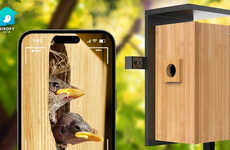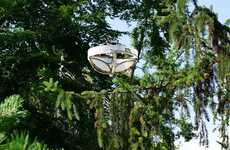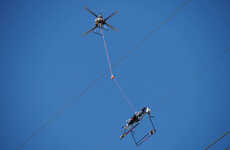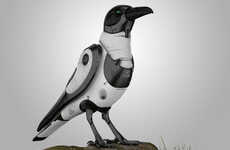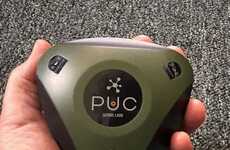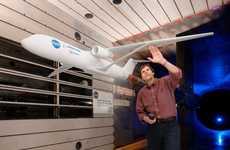
These Electronic Eggs Will Help Study Vulture's Habitats
Rahul Kalvapalle — March 29, 2016 — Tech
References: microduino.cc & gizmag
The International Centre for Birds of Prey has teamed up with Arduino electronics maker Microduino to invent innovative electronic eggs that can be placed into vultures' nests and help shed light on the magnificent creatures' habitats.
The so-called Eggduinos are artificial sensor eggs that look highly realistic. But what the vultures don't know is that these electronic eggs are home to a Bluetooth module, humidity sensor, barometer, gyroscope and accelerometer, not to mention a high-tech sensor that is capable of measuring the strength of magnetic fields. The shells are also embedded with accurate temperature sensors.
The EggDuinos are set to be assessed in labs before being field-tested in either India or Africa in the coming months. Ultimately, these innovative sensor-packed eggs will help researchers better understand the conditions under which vultures breed, valuable knowledge that can help inform conservation efforts for birds of prey.
The so-called Eggduinos are artificial sensor eggs that look highly realistic. But what the vultures don't know is that these electronic eggs are home to a Bluetooth module, humidity sensor, barometer, gyroscope and accelerometer, not to mention a high-tech sensor that is capable of measuring the strength of magnetic fields. The shells are also embedded with accurate temperature sensors.
The EggDuinos are set to be assessed in labs before being field-tested in either India or Africa in the coming months. Ultimately, these innovative sensor-packed eggs will help researchers better understand the conditions under which vultures breed, valuable knowledge that can help inform conservation efforts for birds of prey.
Trend Themes
1. Electronic Sensor Eggs - Electronic sensor eggs are being used in vulture nests to study their habitats and gather valuable data.
2. Wireless Connectivity - The use of Bluetooth technology in the sensor eggs allows for wireless data transmission and remote data collection.
3. Data-driven Conservation - The collected data from the sensor eggs will inform conservation efforts for birds of prey and contribute to their protection.
Industry Implications
1. Environmental Conservation - The environmental conservation industry can utilize sensor eggs to gather important data on various species and inform conservation efforts.
2. Animal Research - The field of animal research can benefit from using electronic sensor eggs to study wildlife and collect data on behavior and habitats.
3. Wireless Technology - The wireless technology industry can explore opportunities to develop and improve wireless connectivity solutions for data collection in various applications.
3.3
Score
Popularity
Activity
Freshness

